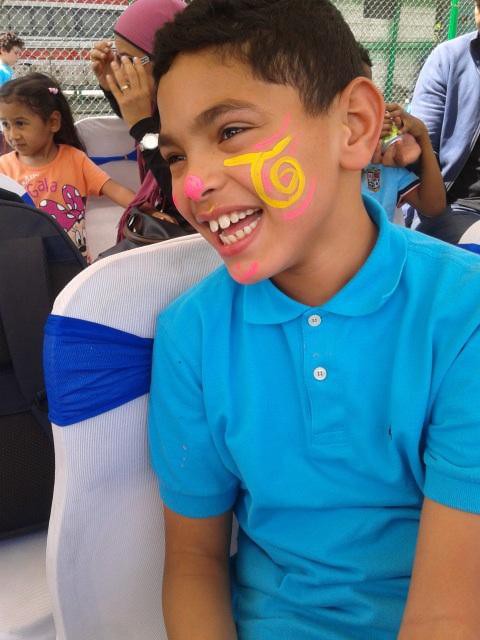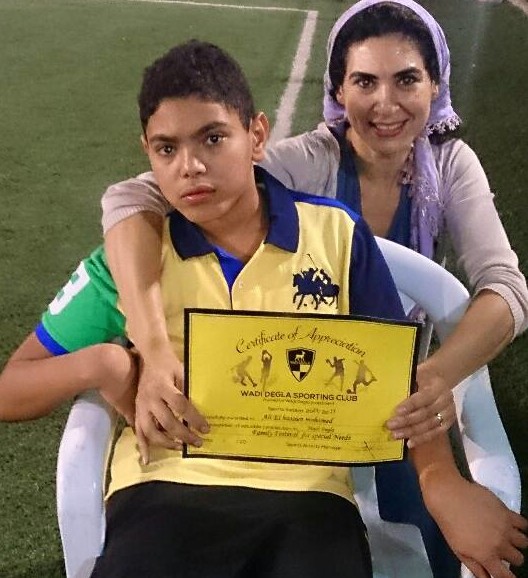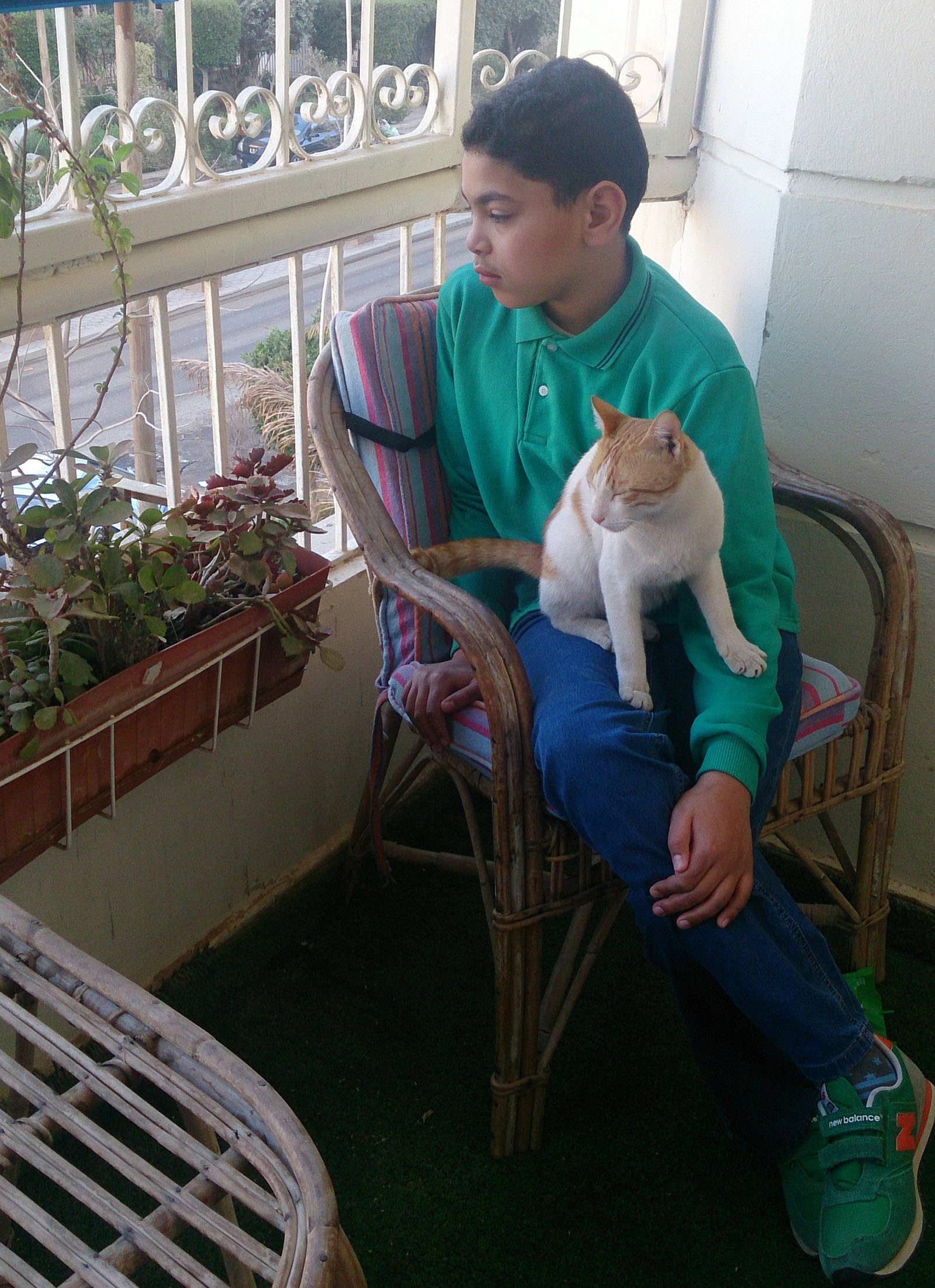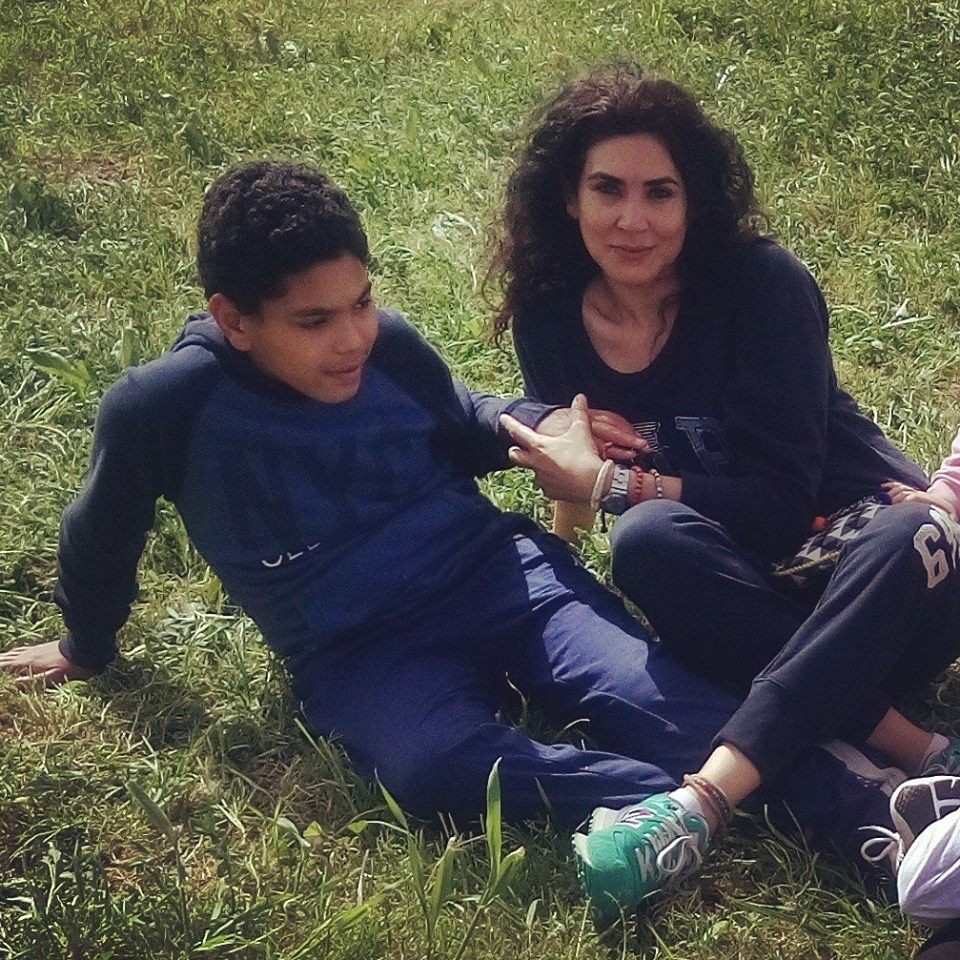Our society is great in many ways, and our people are known for their kindness and helpfulness. However, unfortunately this very same society many times does not respond so well to differences; whether they are natural or acquired, spoken or written, born-with or chosen. Thus, in such a society, raising a child with special needs becomes an extremely hard task, unsupported and unaccepted. Yet it can be an extremely rewarding one filled with lots of hope and love.

Lamia El Adly, director at Egyptian Radio and TV Union (ERTU) knows this too well. She helped us get an in depth look at the challenges and lively aspects she and other mothers like her constantly face in society with their children.
Ali, Lamia’s 13 year-old son, was diagnosed with Autism at the age of 2. Autism is a severe psychiatric disorder defined by difficulties in communication, in building relationships, in language development and also defined by obsessive resistance to small changes in familiar surroundings. Autism is a phenomenon that has not been approached significantly as it has in other regions, and this is supported by the lack of statistics on autistic children in Egypt.
“Ali is a passionate child, who loves swimming, playing piano and being around people just like any other lively child”
Ali is a passionate child, who loves swimming, playing piano and being around people just like any other lively child. He senses the emotions of those around him and picks up on them really fast. This kind of intelligence is also evident in his cognitive actions and comprehension of situations, which many of his teachers and family members have noticed. This goes far enough to show that Autism does not affect the thinking or feeling process. On the contrary, Autistic children can function cognitively and emotionally just like any child – if not more.

When it comes to those who surround him, Ali’s life is full of people who truly love and accept him deeply, “the relationship Ali has with his father is extremely strong, and at times this even makes me jealous”, Lamia expresses, laughing. Furthermore, she expressed the acceptance and extreme love Ali gets from family friends, family members and mothers who have children with special needs, “he is extremely loved, and his father and I do everything to make him happy”, Lamia tells. In return, this form of love and acceptance that Ali is surrounded by, helps significantly through any challenges he and his family may face, “the biggest problem I face with Ali is the way people treat him. Every time we go to a sports club, people keep gazing, and giving looks, and pulling their children away from Ali out of fear he would harm them. People don’t accept him”, Lamia says, expressing the biggest challenge she faces daily with strangers – more specifically those belonging to the upper class. At one point, Lamia even heard someone say, “they should have sports clubs dedicated just for their kind” referring to children with special needs. Due to such challenges, Lamia is left many times feeling uncomfortable in public spaces.
“he is extremely loved, and his father and I do everything to make him happy”, Lamia El Adly
With that being said, Lamia feels relaxed when she takes Ali amongst less privileged people. According to her, they are much more accepting, are extremely friendly and are always making Ali feel extremely welcome, regardless of their lack of knowledge towards his condition.
“raising a child with Autism has made me much more thankful for all my blessings and has taught me to approach life with a much more positive and appreciative outlook”, Lamia El Adly
One of the other great challenges faced in society by mothers like Lamia, is the educational system, “schools take advantage of such special cases for business purposes,” Lamia says, adding that the cases of such children are constantly used for commercial use. In schools that supposedly help such children, high amounts of money are paid by parents. Yet, in return, unequipped professors are hired. Such schools promote socialization, promising to help the child acquire greater social skills by placing them in social environments – which is the key to dealing with Autism. However, after trying out many of these schools, Lamia has found that these promises are never fulfilled and on the contrary, children become more anti-social and reserved. Lamia recalled an instance where Ali was actually hit by his teacher and brought home with a mark on his body, which portrays the irresponsible and inhumane ways such children could get treated by.
On the other hand, Lamia also expressed the significant responsibility, love and care that her sister’s children demonstrate towards Ali, “they grew up with him and know how to treat him, deal with him and care for him genuinely, although they are younger than him – the youngest being 6 years-old”, Lamia tells.

Lamia finds that such responsibility, care and love should be taught in schools, especially when it comes to dealing with children with special needs, adding that there are barely any schools that know how to professionally and genuinely deal with autistic children, “responses like that from such young people give me hope for humanity”, Lamia explains.
Today, Ali is in a school that helps enhance and strengthen the social skills of autistic children by taking them on camps in Hurghada, Sahel, Ain El Sokhna and by organizing social activities. He is finally learning something that can help improve his condition, which once again, nourishes hope in Lamia and in those wanting the best for Ali. However, such a school and rewarding environment is not the norm, “raising a child with Autism has made me much more thankful for all my blessings and has taught me to approach life with a much more positive and appreciative outlook. I don’t like pessimism, and we will continue to fight for our children to have their place in our society with all hopefulness”, Lamia concludes.

